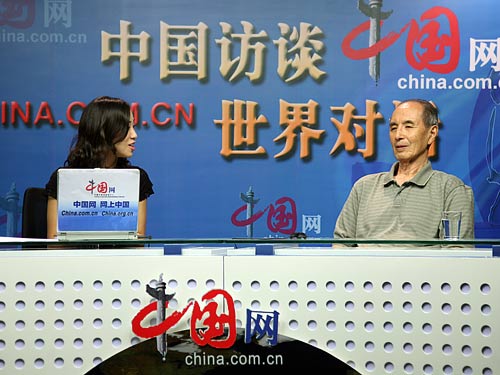
China.org.cn: Many old translators follow a good habit: never too old to learn. What's your opinion on this?
Lin Wusun: The demand for translators is very high. A good translator must not only continue to develop his languages skills, but also broaden his knowledge.
At the moment I am translating a book about Shanghai Pudong's reform and development written by Zhao Qizheng. One chapter is about finance and this is a subject that I am not familiar with. Therefore, I have done two things. First, I have consulted a range of financial books which have given me some basic knowledge of finance. Second, I have asked an expert to review the financial expressions in my translation.
A translator can constantly explore new fields, and there is no uniform standard in the process of translating. It is a creative process. I think this is the charm of translating.
China.org.cn: In the context of globalization and the opening of China's cultural borders, there is an increasing demand for translators. What do you think about the level of translators in our country?
Lin Wusun: Generally speaking, about 500,000 people work as translators in China. Some are part-time. However, there is a lot of translation work to be done. The number of translators is obvious far from sufficient. How to solve this problem? First, alongside the professional translation colleges, many universities and other institutions have set up translation departments. Second, qualifying examinations are being held to encourage people to become translators. Third, there is a growing emphasis on bilingual teaching in the primary years – the best time to learn additional languages.
Management of the industry is a very important field that needs to be treated as a priority. In the developed countries a lot of effort is devoted to training and management of translators. This is especially the case in Europe because the continent has so many languages.
We should have an objective standard, and translation works must come up to this standard. We can evaluate and analyze translation works in a specialized publication, pointing out what is good and what is bad.
In addition to this standard, there is another very important standard in the management of the industry – that of price. In western countries the translation industry is regulated: competition on the basis of price is banned. We need a virtuous circle.